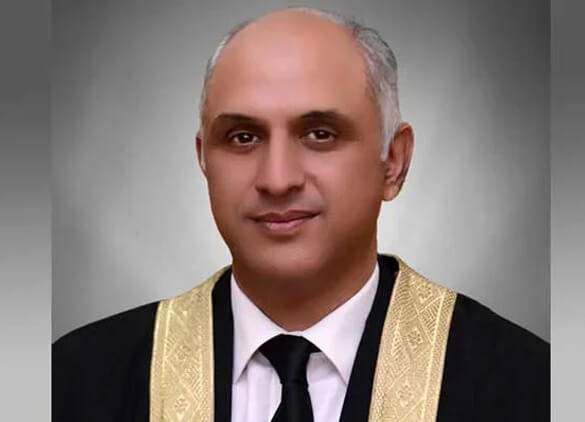LEGAL

Chief Justice of Pakistan (CJP) Yahya Afridi has convened a meeting of the Judicial Commission of Pakistan (JCP) on December 6 to deliberate on key judicial appointments and other pressing issues.
The meeting will primarily consider the nomination of Justice Shahid Bilal Hassan to become the eighth member of the constitutional bench formed under the 26th amendment. The move comes in response to the need for a replacement for Justice Ayesha A. Malik, who was part of the Supreme Court bench that ruled military trials of May 9 violence suspects unconstitutional. Since the ruling is under challenge through intracourt appeals, Justice Malik may not be able to participate in their hearings.
Pending Appeals and the Shuhada Forum Application
The Shuhada Forum Balochistan has submitted an application urging the Supreme Court for an early hearing of the pending intracourt appeals (ICAs). They argue that the fundamental right to life and liberty under Article 9 cannot be curtailed, highlighting the urgency of resolving these cases.
Additional Judicial Appointments
In addition to the constitutional bench nomination, the JCP will also evaluate the elevation of 21 nominees for the vacant positions of additional judges in the Sindh and Peshawar high courts. These nominations are critical to addressing the growing workload in the judiciary.
Progress in Clearing Backlogs
In a notable development, the Supreme Court disposed of 4,372 cases over the past month, while 1,853 new cases were instituted between October 28 and November 29. This achievement underscores a focused effort by the judiciary to address case backlogs and provide timely relief to litigants.
A statement issued by the SC highlighted the renewed focus on judicial efficiency under the leadership of CJP Afridi, who has placed judicial reforms at the forefront of his agenda.
Judicial Reforms and IT Advancements
The past month has seen the CJP chair multiple sessions aimed at modernizing court operations through advancements in information technology. These initiatives include improved case management systems, workflow streamlining, and enhanced judicial staff capacity.
By integrating modern tools and optimizing resources, the reforms aim to reduce delays and bolster the efficiency of judicial processes.
A Focused Vision
CJP Afridi’s dual emphasis on judicial nominations and systemic reforms reflects his commitment to addressing long-standing challenges in the judiciary. As the JCP prepares for its December 6 meeting, stakeholders are hopeful that these measures will further enhance the judiciary's role as a responsive and transparent institution.




